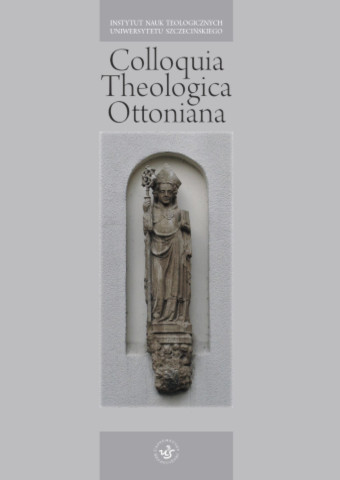
ISSN: 1731-0555
eISSN: 2353-2998
OAI
DOI: 10.18276/cto.2020.36-15





Issue archive /
36/2020
Otwartość Boga. Wieczność i wolna wola
(THE OPENNESS OF GOD: ETERNITY AND FREE WILL)
| Authors: |
Eleonore
Stump

Saint Louis University, USA |
| Keywords: | God’s knowledge free will eternity open theism determinism future contingents |
| Data publikacji całości: | 2020-12-20 |
| Page range: | 22 (327-348) |
Abstract
This article is an analysis of the doctrine of divine eternity. The sources for this doctrine can be traced back to the philosophy of Boethius or Thomas Aquinas. According to the doctrine of divine eternity, the existence of God is not determined by the linear passage of time – God exists in the eternal present. From an eternal perspective, God has simultaneous access to all moments of nature’s linear time. The doctrine of divine eternity is meant to be an antidote to the alleged contradiction of God’s omniscience with the freedom of human will. However, the doctrine of divine eternity has been criticised. Recently, its effectiveness in solving philosophical problems has been undermined by Alvin Plantinga or William Hasker, among others. This work is an attempt to creatively argue against the Hasker’s position. Hasker sees his position as an alternative to classical theism as represented, for example, by Thomism. Hasker rejects Thomism for two reasons. First, the Thomistic God cannot be intimate with human beings or responsive to them. Secondly, the Thomistic view of God as timeless solves the problem of God’s foreknowledge and of the existence of free will only at the cost of making God’s timeless knowledge useless to him in interaction with the temporal world. This paper analyses Hasker’s reasoning leading to the conclusion that free will and timeless knowledge are compatible and gives reasons for concluding that his argument is itself incompatible with the doctrine of eternity. Subsequently, it has been shown that the same conclusion is made even more clearly on the basis of considerations derived from the concept of eternity. Finally, these considerations are used to challenge Hasker’s conclusion that timeless knowledge might be useless to God in directing his actions over time.
Download file
Article file
Bibliography
| 1. | Doolan G. T. (ed.), The Science of Being as Being: Metaphysical Investigations, Washington 2011. |
| 2. | Hasker W., God, Time, and Knowledge, Ithaca, NY 1989. |
| 3. | Hasker W., Providence, Evil and the Openness of God, London and New York 2004. |
| 4. | Krieger G., Die Metaphysik des Aristoteles im Mittelalter – Rezeption und Transformation (Philosophie der Antike), Stuttgart 2014. |
| 5. | Plantinga A., On Ockham’s Way Out, „Faith and Philosophy” 3 (1986), p. 235–269. |
| 6. | Rota M., A problem for Hasker: Freedom with respect to the Present, Hard Facts, and Theological Incompatibilism, „Faith and Philosophy” 27 (2010), s. 287–305. |
| 7. | Rota M., The eternity solution to the problem of human freedom and divine foreknowledge, „European Journal for Philosophy of Religion” 2 (2010), s. 165–186. |
| 8. | Stump E., Aquinas, London and New York 2003. |
| 9. | Stump E., Eternity and God’s Knowledge: A Reply to Shanley, „The American Catholic Philosophical Quarterly” 72 (1998), s. 439–445. |
| 10. | Stump E., Kretzmann N., Eternity, „The Journal of Philosophy” 78 (1981), s. 429–458. |
| 11. | Stump E., Kretzmann N., Prophecy, Past Truth, and Eternity, w: J. Tomberlin (ed.), Philosophical Perspectives 5 (1991), s. 395–424. |
| 12. | Stump E., N. Kretzmann N., Eternity, Awareness, and Action, „Faith and Philosophy” 9 (1992), s. 463–482. |
| 13. | Stump E., Omnipresence, Indwelling, and the Second-Personal, „European Journal for Philosophy of Religion”, 5/4 (2013), s. 63–87. |
| 14. | Zagzebski L., Foreknowledge and Free Will, w: The Stanford Encyclopedia of Philosophy (2011 Edition), https://plato.stanford.edu/archives/fall2008/entries/free-will-foreknowledge/ (dostęp 01.11.2020). |
| 15. | Zagzebski L., The Dilemma of Freedom and Foreknowledge, New York and Oxford 1991. |